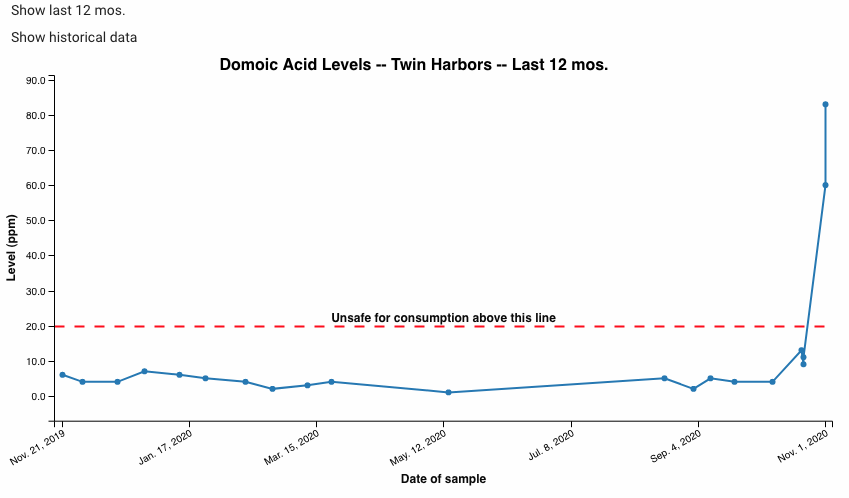
More Washington Razor Clam Digs Cancelled as Domoic Levels Spike
THE FOLLOWING IS A PRESS RELEASE FROM THE WASHINGTON DEPARTMENT OF FISH AND WILDLIFE
Washington’s ocean beaches will remain closed to razor clam harvest until at least December after test results on razor clams dug at Long Beach, Twin Harbors, Kalaloch and Copalis indicate levels of domoic acid that exceed the threshold (20 parts per million (ppm)) set by state public health officials for safe consumption.

“Concentrations of domoic acid have increased rapidly beyond safe consumption thresholds set by the Washington Department of Health (DOH),” said Larry Phillips, coastal region director with the Washington Department of Fish and Wildlife (WDFW). “It is entirely possible that we will see higher than safe levels, even into December. We understand how important razor clam digging opportunities are to coastal communities and citizens of Washington, and we will continue to work with our partners to reopen as soon as possible.”

Domoic acid, a natural toxin produced by certain types of marine algae, can be harmful or fatal if consumed in sufficient quantities. More information about domoic acid, as well as current levels at ocean beaches, can be found on WDFW’s domoic acid webpage.
WDFW managers will await additional test results from DOH prior to announcing additional digging opportunities.
WDFW has seen near record participation on recent digs. To avoid concentrating clam diggers and disproportionately increasing the risk of COVID-19, all razor clam beaches are closed for harvest statewide—including on Mocrocks Beach, where domoic acid levels have risen to at least 11 ppm and may have risen to unsafe levels since the latest test by DOH.
Razor clam diggers have enjoyed more than 80,000 trips and harvested nearly 1.2 million clams in 2020, but the department won’t be able to announce if tentatively scheduled December digs can move forward until marine toxin test results are conducted by DOH in mid-November.
Public health officials will also be closely monitoring the incidence of COVID-19 throughout the digging season, and WDFW will rely on their guidance when making in-season adjustments to the schedule if necessary to reduce public health risks.
